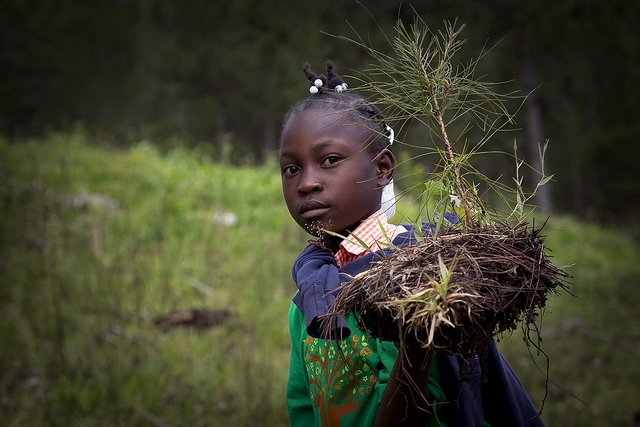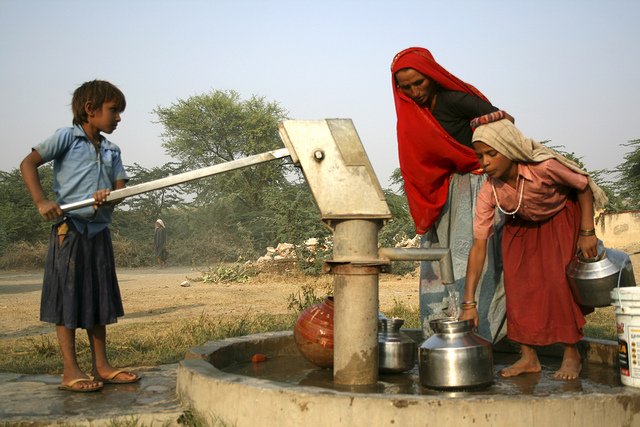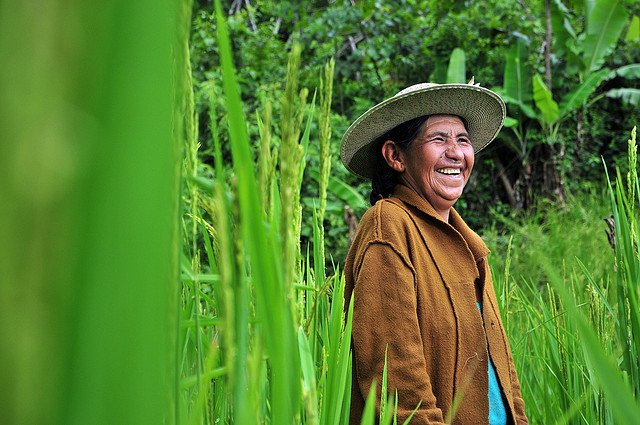On the 15th day of each month in 2015, Action/2015uk invites you to join in making a noise about 2015 - a very important year for people and planet. Join the conversation on Twitter.
Climate change is a big challenge, and this year offers us a huge opportunity to do something about. Action/2015-ers speak up for things we must take action to protect, and here are just a few...
People and Planet
People and planet are intricately linked. We cannot address poverty without dealing with climate change, but we will fail to deal with climate change without sustainable development. There is no scenario where we can tackle one issue and ignore the other.
The impact of climate change on development is clear. The effects of global warming are already being felt, especially by people living in some of the world’s poorest places. Climate change threatens to reverse many of the advances made in tackling poverty and inequality over previous decades. It also threatens our efforts to create a more equal, just and sustainable future.
But the effect of human development on our environment is also evident. There is overwhelming consensus and evidence to show that global warming is a man-made reality. Scientists are 95% certain that climate change is occurring as a result of human activity.
This year, more than ever before, international summits and public mobilisation highlight the strong relationship between climate and development. The climate negotiations in December will be the first test of political commitment to the new sustainable development goals.
We must speak up to remind our government that the new development goals announced in September will only be meaningful if we can live them out on a healthy planet.
Alice Delemare, Bond
Children and Their Inclusion
Children are one of the most vulnerable groups exposed to extreme weather events and other disasters that are rapidly increasing as a consequence of climate change. Clearly within this overarching category, there are also especially vulnerable children such as those with disabilities, refugees and migrants, and girls in certain cultures.
Despite this, it is not at all clear that children are recognised as a constituency with a legitimate stake in responding to this global crisis. They are not party to current decision-making processes which are intended to find a solution to climate change, which is a violation of their right to be listened to and taken seriously in relation to all matters which affect them. Nor are they being equipped with the skills and knowledge they need to mitigate the worst effects of climate change. What makes this even worse, is that the children who are so badly affected are typically those living in the most challenging of circumstances, who may already be facing multiple rights violations (lack of access to education, drinking water and so on…)
So what should we do? We at Child to Child believe that children can and should be able to realise their fundamental right to play a meaningful role in responding to climate change, in line with provisions in the UN Convention on the Rights of the Child. To deny them this right is not only shortsighted but an injustice and travesty.
Tricia Young, Director of Child to Child
Women and Girls
Women and girls in developing countries bear the brunt of the impact of climate change harder than anyone. Because they make up the majority of the world’s poor and are more dependent on land and natural resources, women and girls are more vulnerable to the shifts in crop cycles and weather patterns. They are often in charge of collecting water, food, fuel and key resources which are being affected by climate change right now.
Rebecca Masimba lives in Wedza, in rural Zimbabwe, with her husband and family. She’s lived there for more than 38 years. She told us, “I am happy when there has been a good harvest and we have enough to feed the family, but famine is a problem here. The biggest problem is lack of water. Our crops demand rainfall and during the dry season. We cannot grow anything. Everything I do needs water: cooking, washing, feeding my animals – even the flowers in my hair need water, but there is not enough.”
It is important to remember that women are not only vulnerable to climate change, but they can also be effective agents of change. Their role as stewards of natural resources positions means they can help make sure livelihoods can adapt to changing environmental realities.
Women and girls must not be neglected this year when the expected global deal on climate is negotiated Steps need to be taken to ensure the deal is gender sensitive and protects those who currently are most affected by climate change. Women and girls need to be listened to when setting down strategies to mitigate and adapt to the impact of climate change.
Jenny Vaughan, Progressio
Safe Water and Sanitation
‘Business as usual’ emission rates will lead to climatic changes that will reverse decades of development gains and thwart any chance of achieving universal access to water, sanitation and hygiene.
Currently, more than 750 million people rely on unsafe water sources that are highly exposed to climatic threats, and 2.5 billion people lack access to adequate sanitation. These are the people we must speak up for. A lack of access to safe water and sanitation increases vulnerability to climate change. Floods, cyclones and storm surges can rapidly spread disease in areas without these essential services.
We must see a drastic reduction in the amount of carbon being emitted into the atmosphere to avoid catastrophic climatic changes. Additionally, climate finance must be allocated to address the urgent adaptation needs of the most vulnerable countries and the poor and marginalised people within those countries.
The impacts of climate change will be mainly felt through the medium of water. We must be prepared. Delivering universal access to sustainable water, sanitation and hygiene now can help to build resilience to climate change in the future.
Wen, Research Officer, WaterAid
Older People
As climate change leads to more extreme weather conditions globally, it is important to remember that our world is aging. By 2050, the global population of people over 60 will grow from 12.5% to 22%, the majority of which will be in developing countries where climate change impacts are being felt most severely. Older people face more severe impacts as a result of climate related disasters such as flooding, heatwaves and drought.
Higher proportions of older people are likely to be affected by factors such as respiratory illness, heart disease, reduced mobility, social exclusion or low income which increases their vulnerability as climatic conditions become more extreme. In addition, they may be more dependent on services which may be disrupted by climatic disasters. It is important to remember that not all older people experience the same level of vulnerability and many have significant experience which can contribute to our global resilience.
Older people need to be part of the climate change dialogue to contribute solutions and ensure that services and systems such as water systems, social protection, and health systems remain resilient, that livelihoods and economic development strategies are climate smart and age inclusive, and to ensure that urban and rural environments develop in aging and climate smart ways.
Clodagh Byrne, HelpAge International
Those Trapped in Poverty
The poorest people in the poorest countries, like Bangladesh, are bearing the brunt of global warming. But they are contributing least per head to the greenhouse gas emissions that are causing the problem. This is why we are calling for a firm commitment from developed countries to ensure carbon emissions are reduced. We need political commitments that are legally binding so that every country can be held responsible and made accountable for the commitments it makes.
I have met the people who are on the front line of climate change when seeing Islamic Relief’s sustainable livelihoods projects in Bangladesh; as a global Muslim citizen who cares about the earth we live in, I call on world leaders to act making a fairer deal and do more for those affected by climate change ahead of the United Nations Climate Change Conference in Paris this December...because climate change has already cost too many lives.
Join thousands who will be attending the Speak Up mass lobby event at Westminster on Wednesday 17th June 2015. With faith leaders we’re creating a giant heart filled with messages of hope. Together we can make sure our leaders hear our voices and speak out against this global injustice.
Lotifa Begum, Campaigns & Education Coordinator at Islamic Relief and BOND Faith Campaigns Co-Chair


